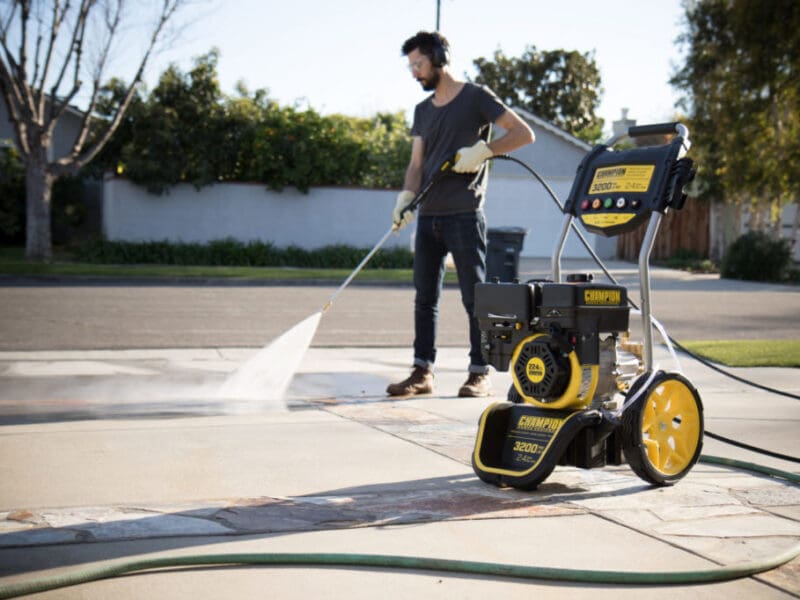
What is Considered a High-Conflict Custody Case?
A high-conflict custody case is defined as any case in which there are allegations of domestic violence, child abuse, sexual molestation of the child, drug use by either parent, or negligence on the part of one or both parents. These cases tend to be more complicated than other custody cases; if two people do not get along well enough to work on an amicable parenting plan, it can be emotionally and financially draining for all involved.
In a high-conflict situation, both parents have significant psychological issues that affect their ability to parent their children in a healthy way. If these problems are not addressed through therapy and counseling, they often result in a more considerable degree of conflict between the couple even after divorce proceedings have been completed. A high-conflict custody case is not likely to end in the two parents working together and sharing equal custody of their child. Instead, it will typically end up in one parent gaining full custody and another receiving limited visitation.
The judge who presides over a high-conflict case will determine what type of parenting time each parent has with respect to keeping the child safe from further damage. A court may limit a parent’s visits after determining that the parent cannot provide a safe environment for the children or fails to follow terms set by a previous judge regarding an agreement they made between divorcing parties. In addition, if there is credible evidence that a child was molested or abused, it can be grounds for an argument against any parenting time between the child and an alleged abuser.
In a high-conflict custody case, it will be necessary for a judge to have testimony from a mental health professional who can address any psychological problems that may have facilitated the conflict between the parents. A judge should also try to balance each parent’s rights with those of the child’s need for a safe environment, regardless of whether that environment is shared by both parents or just one.
The goal in these cases is not about punishing someone, but instead about providing children with healthy relationships with their parents even after divorce proceedings are completed.
When Doctors Get Involved
In a high-conflict custody case, when both parents cannot agree on a parenting plan, the court will appoint someone from child services to investigate and testify on behalf of what is best for the child. The doctor may be asked to recommend access and visitation periods based upon reports and evaluations made during investigations of abuse or neglect of children.
A doctor’s role in deciding custody varies by state laws. In some states, however, doctors who have had extensive contact with a family through their work may also serve as expert witnesses regarding such questions as parental fitness and the effects of divorce on children. A pediatrician can offer medical opinions if there is suspected molestation or abuse and testify in court. This will weigh heavily on the judgment of who will get the child or children.
Doctors are typically much more involved in high-conflict custody cases due to the nature of their work and legal involvement. It depends on the severity level, as some parents are not fit, in which case, the child or children may be handed over to the nearest relative, or the state may take custody if no one is available. One or both parents may have to seek mental help in these cases even before supervised visits can occur.
When Child Protection Services Get Involved
Child Services is often involved when there is a conflict between parents about custody of their children. This high-conflict nature can include physical or emotional abuse, neglect, drug use, or parents’ refusal to cooperate in child-raising.
Parents who repeatedly disagree about the same issues may be considered high-conflict even if there has never been evidence of physical abuse in the past.
The court must recognize that these cases are difficult to handle without support from CPS (Child Protection Services). If Child Services has become involved with a family, it can cause long-term problems for both parent and child. Court employees should not take sides when investigating allegations of custody violations by either party; they need to remain neutral to repay their allegiance to the child and not to either parent.
The court must ensure that the children involved in these cases do not suffer emotional or psychological damage because of their parents’ conflicts. Courts need to admit that they’re not equipped to deal with such high-conflict custody battles and refuse cases unless there is a clear criminal issue. When courts get involved, it can lead both families into further conflict and prevent cooperation between them. This outcome will impact the development of any action taken for custody by Child Services because judges may find it challenging to ignore existing conflict.
It’s also crucial for both parents and individuals working for CPS agencies (Child Protection Services) to be open about any suspicion of guilt during investigations. They should not act on their judgment but be willing to explore the possibility of innocence. A full investigation will come forward with new information about problems in the family and can correct any false accusations made. If there is no evidence of guilt, then CPS needs to work with both parents toward reuniting them with their child or children.
If Child Services must become involved in your case, you may want to discuss your situation with an experienced attorney specializing in family law. They’ll offer more information about how Child Services handle these cases. An experienced attorney can help you navigate this complicated process successfully while protecting your rights as a parent and ensuring that you’re treated fairly during investigations into custody issues within your family.
What An Attorney Can Do For Your High-Conflict Custody Case
Separation and divorce are often challenging enough without the additional stress associated with child custody issues. When the parents cannot cooperate, it can put children in an unwanted position of having conflicting times with each parent. If custody battles reach high levels of acrimony, then experts term these cases as “high-conflict custody” disputes.
There are many reasons why a parent may become involved in a high-conflict custody battle. Some common causes include:
- A history of substance abuse
- Domestic violence allegations
- Criminal behavior
- Mental health history (i.e., depression)
- Allegations that one of the parents is alienating or brainwashing the child(ren) against the other parent
If you believe that your custody battle is approaching a high-conflict status, you need to secure the services of a skilled family law attorney to protect your interests and those of your children. An attorney will help advise you about creating the parenting schedule that works best for everyone involved. By initiating early action by hiring an attorney as soon as possible, parents can work together with their lawyer in devising a plan that may minimize future conflict before it leads to court hearings and ultimately to an order from a judge. If both parents are ready and willing to cooperate, there should be minimal need for court intervention or oversight. Working together reduces the amount of animosity between parents, which directly benefits the children involved.
Suppose your custody battle is approaching the level of high conflict. In that case, you will want to seek out an experienced family law associate who can help you develop a parenting schedule based upon what’s in the best interests of your child(ren). Early on, having representation from an attorney helps ensure that everyone knows their rights and responsibilities while avoiding court intervention whenever possible. Parents who can work together towards shared goals often fare better than those who lack this ability.
Future Visitations And Proving Worthiness
In these cases, it may be difficult for one of the parents to get visitation rights because they will have to prove that they are worthy enough to see their kids even though the other parent does not want them to.
The thing about these situations is that since there’s such obvious tension between you and your ex, there’s no way that you’re going to be able to convince them that you would make suitable company for your children if your ex feels like you should not even be around them. If you think this is unfair, you need to know that all hope isn’t lost.
These visitations can be challenging to achieve, but they’re not impossible to get. If you want the court system to give you visitation rights for your future child, then it’s crucial that you use these tips found in this article that will help show that you should be allowed time with them even though your ex does not want it. If both parents are unfit or unwilling to raise their kids, the children will go live with the family until the situation has improved, which could mean custody is only granted if both parents clean up their act.
If someone is a danger to their child, the court may decide that they are not competent enough to get visitation rights. In this case, there’s no shame in seeking help from counseling or from other programs that will help you if you’re struggling with addiction.
The main thing is going to be proving to the judge and your ex that you have overcome whatever it was that made them think you were an unfit parent. It could be drugs, alcohol, stress, or anger management issues. As long as they see the change in you, they may give you a chance to prove that you’d make a good parent even if they don’t want you to.
If your ex is also willing to change for the sake of their kids, then it’s going to be easier for everyone. If both parents are ready to get help, there’s a better chance that the judge will allow joint custody or at least one parent getting visitation rights.
It can be worth mentioning here what most people know already: that you will always be able to see your child if it’s in their best interests. If that is what you want at this point, then take the time to prove to the court that you are responsible enough for these kids.
Working It Out for the Children
The idea is that for them to do something like let you spend overnight together or even get in some custody arrangement where they can go back and forth between both parents’ homes, then the judge is going to need proof that your ex agrees with your proposal. They’re also going to need to see that you can take care of yourself, your kids, and them adequately.
If anyone suffers from addiction issues, it’s vital to seek treatment so the judge thinks you are responsible enough for visitation or even joint custody. Over time, if any parent has overcome these types of problems, the court will be able to give them what they want to have a relationship with their child.
As long as you prove that you are over whatever was keeping you from being good parents before then, it will be easier for you to get visitation rights or even joint custody. If both parents are willing to seek help instead of fighting, then there is a chance that the judge will let them have what they want if it’s in the child’s best interests.







